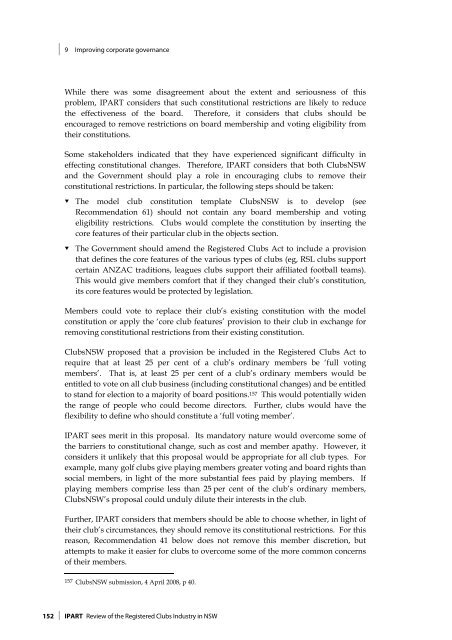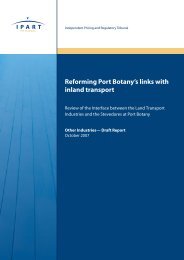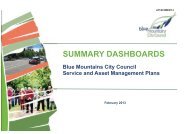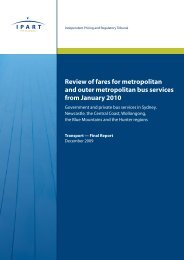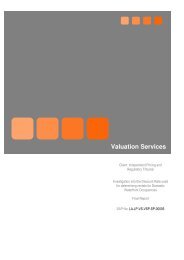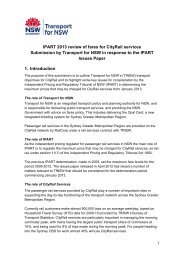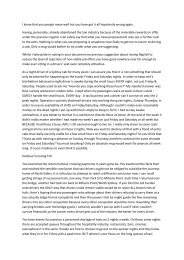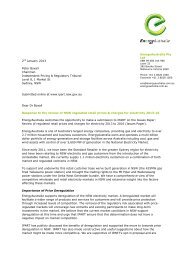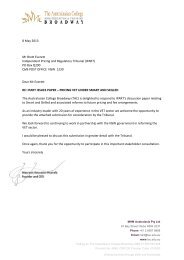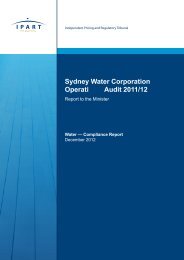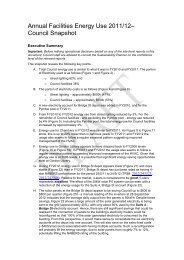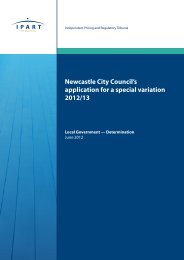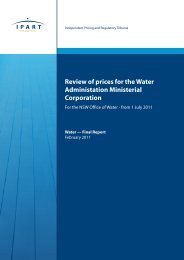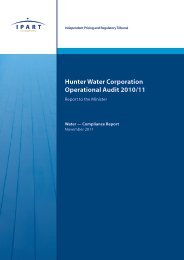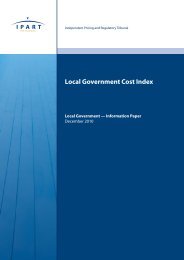Review of the Registered Clubs Industry in NSW - Clubs NSW
Review of the Registered Clubs Industry in NSW - Clubs NSW
Review of the Registered Clubs Industry in NSW - Clubs NSW
Create successful ePaper yourself
Turn your PDF publications into a flip-book with our unique Google optimized e-Paper software.
9 Improv<strong>in</strong>g corporate governance<br />
While <strong>the</strong>re was some disagreement about <strong>the</strong> extent and seriousness <strong>of</strong> this<br />
problem, IPART considers that such constitutional restrictions are likely to reduce<br />
<strong>the</strong> effectiveness <strong>of</strong> <strong>the</strong> board. Therefore, it considers that clubs should be<br />
encouraged to remove restrictions on board membership and vot<strong>in</strong>g eligibility from<br />
<strong>the</strong>ir constitutions.<br />
Some stakeholders <strong>in</strong>dicated that <strong>the</strong>y have experienced significant difficulty <strong>in</strong><br />
effect<strong>in</strong>g constitutional changes. Therefore, IPART considers that both <strong>Clubs</strong><strong>NSW</strong><br />
and <strong>the</strong> Government should play a role <strong>in</strong> encourag<strong>in</strong>g clubs to remove <strong>the</strong>ir<br />
constitutional restrictions. In particular, <strong>the</strong> follow<strong>in</strong>g steps should be taken:<br />
The model club constitution template <strong>Clubs</strong><strong>NSW</strong> is to develop (see<br />
Recommendation 61) should not conta<strong>in</strong> any board membership and vot<strong>in</strong>g<br />
eligibility restrictions. <strong>Clubs</strong> would complete <strong>the</strong> constitution by <strong>in</strong>sert<strong>in</strong>g <strong>the</strong><br />
core features <strong>of</strong> <strong>the</strong>ir particular club <strong>in</strong> <strong>the</strong> objects section.<br />
<br />
The Government should amend <strong>the</strong> <strong>Registered</strong> <strong>Clubs</strong> Act to <strong>in</strong>clude a provision<br />
that def<strong>in</strong>es <strong>the</strong> core features <strong>of</strong> <strong>the</strong> various types <strong>of</strong> clubs (eg, RSL clubs support<br />
certa<strong>in</strong> ANZAC traditions, leagues clubs support <strong>the</strong>ir affiliated football teams).<br />
This would give members comfort that if <strong>the</strong>y changed <strong>the</strong>ir club’s constitution,<br />
its core features would be protected by legislation.<br />
Members could vote to replace <strong>the</strong>ir club’s exist<strong>in</strong>g constitution with <strong>the</strong> model<br />
constitution or apply <strong>the</strong> ‘core club features’ provision to <strong>the</strong>ir club <strong>in</strong> exchange for<br />
remov<strong>in</strong>g constitutional restrictions from <strong>the</strong>ir exist<strong>in</strong>g constitution.<br />
<strong>Clubs</strong><strong>NSW</strong> proposed that a provision be <strong>in</strong>cluded <strong>in</strong> <strong>the</strong> <strong>Registered</strong> <strong>Clubs</strong> Act to<br />
require that at least 25 per cent <strong>of</strong> a club’s ord<strong>in</strong>ary members be ‘full vot<strong>in</strong>g<br />
members’. That is, at least 25 per cent <strong>of</strong> a club’s ord<strong>in</strong>ary members would be<br />
entitled to vote on all club bus<strong>in</strong>ess (<strong>in</strong>clud<strong>in</strong>g constitutional changes) and be entitled<br />
to stand for election to a majority <strong>of</strong> board positions. 157 This would potentially widen<br />
<strong>the</strong> range <strong>of</strong> people who could become directors. Fur<strong>the</strong>r, clubs would have <strong>the</strong><br />
flexibility to def<strong>in</strong>e who should constitute a ‘full vot<strong>in</strong>g member’.<br />
IPART sees merit <strong>in</strong> this proposal. Its mandatory nature would overcome some <strong>of</strong><br />
<strong>the</strong> barriers to constitutional change, such as cost and member apathy. However, it<br />
considers it unlikely that this proposal would be appropriate for all club types. For<br />
example, many golf clubs give play<strong>in</strong>g members greater vot<strong>in</strong>g and board rights than<br />
social members, <strong>in</strong> light <strong>of</strong> <strong>the</strong> more substantial fees paid by play<strong>in</strong>g members. If<br />
play<strong>in</strong>g members comprise less than 25 per cent <strong>of</strong> <strong>the</strong> club’s ord<strong>in</strong>ary members,<br />
<strong>Clubs</strong><strong>NSW</strong>’s proposal could unduly dilute <strong>the</strong>ir <strong>in</strong>terests <strong>in</strong> <strong>the</strong> club.<br />
Fur<strong>the</strong>r, IPART considers that members should be able to choose whe<strong>the</strong>r, <strong>in</strong> light <strong>of</strong><br />
<strong>the</strong>ir club’s circumstances, <strong>the</strong>y should remove its constitutional restrictions. For this<br />
reason, Recommendation 41 below does not remove this member discretion, but<br />
attempts to make it easier for clubs to overcome some <strong>of</strong> <strong>the</strong> more common concerns<br />
<strong>of</strong> <strong>the</strong>ir members.<br />
157 <strong>Clubs</strong><strong>NSW</strong> submission, 4 April 2008, p 40.<br />
152 IPART <strong>Review</strong> <strong>of</strong> <strong>the</strong> <strong>Registered</strong> <strong>Clubs</strong> <strong>Industry</strong> <strong>in</strong> <strong>NSW</strong>


